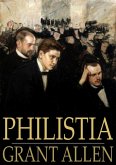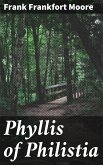In "Philistia," Grant Allen intricately explores the lives of individuals caught in the web of societal expectations and moral dilemmas in late Victorian England. The narrative unfolds through a blend of realism and psychological insight, revealing the struggles of conforming to prevailing norms while seeking personal fulfillment. Allen's prose is marked by its clarity and keen observation of human behavior, making the characters' inner conflicts palpable and relatable. Set against a backdrop of shifting cultural landscapes, the novel critiques the bourgeois values of the time, shedding light on the tension between artistic ambition and social propriety. Grant Allen, a notable figure in the late 19th-century literary scene, was not only an author but also a prominent science writer and a strong advocate for social reform. His eclectic background, which encompassed both literary and scientific pursuits, provided him with a unique lens through which he examined contemporary issues. Allen's personal experiences with societal constraints and his progressive views on education and morality deeply informed the thought-provoking themes found in "Philistia." This novel is highly recommended for readers interested in Victorian literature and social commentary, as it provides a rich tapestry of characters navigating the complexities of their environment. Allen'Äôs insightful observations and engaging storytelling invite readers to reflect on the cost of societal conformity and the pursuit of genuine self-expression.
Dieser Download kann aus rechtlichen Gründen nur mit Rechnungsadresse in A, B, BG, CY, CZ, D, DK, EW, E, FIN, F, GR, H, IRL, I, LT, L, LR, M, NL, PL, P, R, S, SLO, SK ausgeliefert werden.









